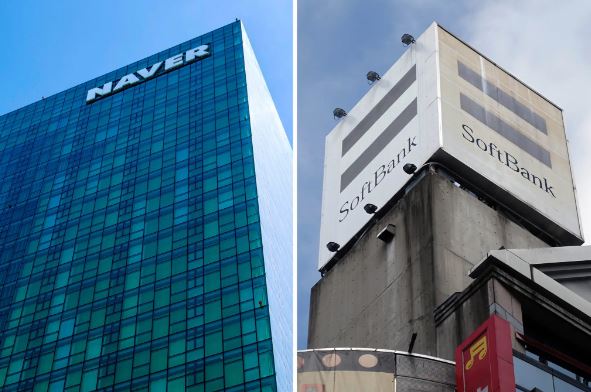In 2019, a joint venture between two leading Japanese and South Korean companies, Naver and SoftBank Group, was celebrated as a symbol of cooperation amid strained diplomatic relations. This venture, codenamed Gaia to underscore collaboration, involved the joint ownership of Line, a South Korean-developed messaging app popular in Japan. Despite progress in mending historical tensions between Japan and South Korea, a recent ownership dispute over this venture threatens to rekindle old rifts, worrying diplomats and international relations experts.
Historically, Japan and South Korea, both key U.S. allies in Asia, have had a tumultuous relationship. Japan’s colonization of Korea from 1910 until 1945 left lasting scars, often causing friction over territorial and geopolitical issues. Maiko Takeuchi, regional managing director at CCSI, a group advising on international security issues, highlights how minor tensions can escalate, affecting broader defense and diplomatic efforts, particularly with concerns about North Korean nuclear activities and regional instability.
The messaging platform at the heart of the dispute, Line, was introduced in Japan by Naver in 2011. It gained immense popularity, especially after the Tohoku earthquake and tsunami disrupted phone lines, enabling communication via the internet. Line’s success led to its expansion into Thailand, Taiwan, and Indonesia, amassing millions of users.
In 2019, SoftBank’s Masayoshi Son and Naver’s Hae-Jin Lee agreed to a 50-50 joint venture to operate Line, termed the “Son-Lee alliance.” This deal came when Japanese-South Korean relations were at a historic low, exacerbated by South Korea’s Supreme Court ordering Japanese companies to compensate Koreans forced into labor during World War II. Japan’s subsequent export restrictions on critical chemicals for South Korea’s semiconductor industry further strained relations, threatening intelligence-sharing agreements vital to U.S. interests in the region.
However, by 2023, relations improved significantly. South Korean President Yoon Suk Yeol announced a compensation plan for former forced laborers, funded by a government-led initiative. This led to a historic meeting with Japan’s Prime Minister Fumio Kishida, marking a thaw in relations and Japan lifting its semiconductor material export restrictions.
Despite these diplomatic strides, late 2022 saw cracks in the Naver-SoftBank venture. LY Corporation, Line’s operator, reported unauthorized access to its systems via Naver’s cloud storage. Japan’s communications ministry then issued a statement interpreted as a directive for Naver to reduce its stake in the joint venture, causing uproar in South Korea. Analysts and politicians viewed this as Japan leveraging political pressure against Naver, a major South Korean company. Naver’s union opposed any sale, and CEO Choi Soo-Yeon criticized the Japanese directive as “highly unusual.”
An editorial in the Korea Economic Daily likened Japan’s move to state interference, arguing it contradicted the principles of a civilized nation. South Korean opposition parties criticized President Yoon for his conciliatory stance towards Japan, with prominent figures like Cho Kuk calling his approach “humiliating.” In a May briefing, Yoon’s policy chief, Sung Tae-yoon, asserted that Japan should refrain from adverse measures against Naver, emphasizing South Korea’s commitment to protecting its companies from unfair treatment abroad.
Amidst these tensions, SoftBank and Naver are negotiating possible changes to the ownership structure of Line’s operator. While Naver executives remain largely silent, expressing openness to various possibilities, Japan’s communications ministry insists it is up to Line’s operator to improve its security governance.
Leaders on both sides are determined to prevent the Line dispute from escalating. In May, Kishida and Yoon agreed to ensure the issue does not hinder diplomatic relations. Historical precedents show minor incidents can escalate into prolonged conflicts, as seen in 2018 when a South Korean naval ship allegedly targeted a Japanese aircraft, halting defense exchanges until recently.
How Japan addresses the Line ownership issue could influence the broader trajectory of Japanese-Korean relations. Yul Sohn, president of the East Asia Institute in Seoul, notes that the South Korean public views the Yoon government’s efforts as a half-full cup awaiting Japan’s response. A gesture of goodwill from Japan, like a concession in the Line dispute, could foster further cooperation, despite the underlying cracks that need attention in this phase of reconciliation.

